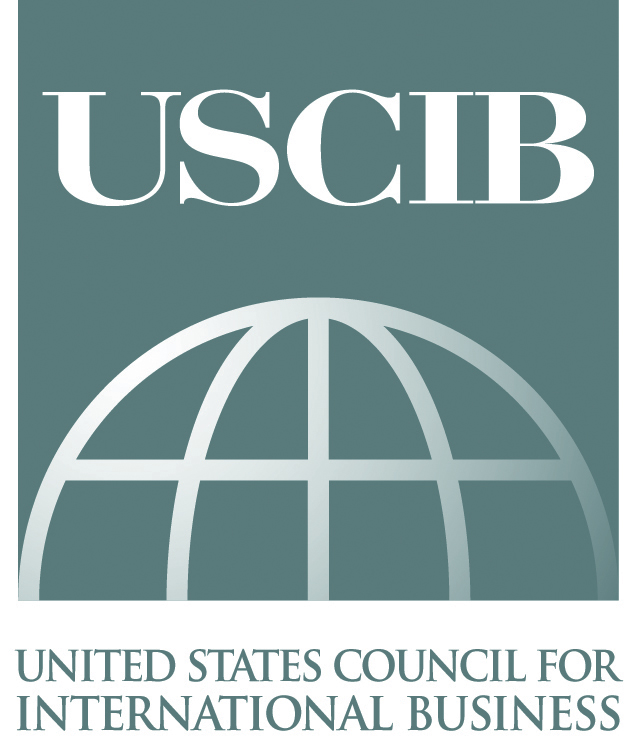Potter Gives Statement on Climate Change at ILO Conference
Published 06-13-17
Submitted by USCIB

USCIB Senior Counsel Ed Potter is currently attending the International Labor Organization (ILO) International Labor Conference (ILC) in Geneva, Switzerland (June 5-16) as a U.S. employer delegate. The ILC is discussing pressing global issues such as women at work, application of labor standards, peace and stability, migration and climate change.
Potter delivered the following statement on June 12 during the 2017 Plenary Statement on the Director General’s report on behalf of business regarding climate change and the Paris Agreement:
2017 Plenary Statement on the Director General’s Report
Adopted in 2015, the Paris Agreement on climate change is now the globally recognized framework for international climate action and represents a reset of the global approach to climate change. Anything adopted by the ILO on climate change prior to 2015 should be reevaluated in light of the Paris Agreement. The Paris Agreement is historic because it envisions self-determined actions and pledges by all countries, according to their priorities and resources. Importantly, it eliminated the binary Kyoto annexes which divided 193 countries into 2 arbitrary categories.
We are concerned by language in the Director General’s Report that seems to over-simplify the challenge ahead, portraying a straightforward “green” vs. “dirty” choice of technologies, industries, products and jobs. We do not live in a binary “green” job “brown” job world, and similarly we do not have “green” versus “brown” energy or technology. The reality is more complex, and there are many other stakeholders involved – notably consumers. The fact is that all industry sectors will need to transition to cleaner and more efficient operations and energy sources. The scale of transformation required to meet Paris commitments cannot be met without business finding ways to respond to growing populations seeking reliable affordable energy sources to run businesses, schools, hospitals, etc. Whether the discussion is on ICT and smart grids, or new ways to sequester carbon that could extend the use of fossil fuels while reducing their greenhouse gas emissions, or zero emissions transport, a fuller and more multi-dimensional picture of enterprises is needed. It is not about the coal miner versus the solar panel installer – it is much more complex.
Transitions will be felt in the business community in the form of opportunities for new industries or products across a wider array of sectors than those normally referred to as “green” through supply and value chains and arising from regulations, costs or innovations that result in more disruptive change or harm to competitiveness. Without growth and productive employment, there is less room for the successful protection of the environment and the promotion of decent work. As enterprises are the primary source of job creation, a business-friendly environment remains an essential priority. Sustainable jobs and sustainable businesses go hand in hand.
The Paris Agreement calls not just on governments but other societal partners, including the business community to act. The business community has shown strong and continuous commitment to support the Paris Agreement and its implementation. Delivering the Paris commitments depends on the full engagement of business and employers. In fact, after my country’s recent withdrawal from the Paris Agreement, nearly 1000 large companies and investors joined a “We Are Still In” movement, representing 120 million Americans and 40 percent of the US economy at the state and municipal level. Local attitudes are important and matter.
As highlighted in the Director General’s Report, over the past two years. the UNFCCC has launched its work on “Just Transition”. Yet until last month, the UNFCCC did not adequately or directly involve business and employers on these topics – while the ILO has been consulted throughout, as has the ITUC. It is only in the last 2 months that business or employer views have been communicated to the UNFCCC via a joint submission by the IOE and ICC, and by IOE and ICC participation in the May 9 Bonn meeting on the UN Framework Convention on Climate Change. The Roundtable highlighted the need for enhanced involvement of employers and the need for direct consultation with them in the future on just transition and other employment related matters. Tripartism is a cornerstone of this Organization and should apply both inside and outside the ILO.
Much of the Director General’s report focuses on the labor market churn that will occur as a result of the transition from “dirty” to “green” jobs. The strong impression the reader gets from his Report is that climate change requires a dedicated, special program by the ILO. Our view is that structural change and job impact of climate change is not at all dissimilar from other ongoing structural change resulting from technological change. Ask any expert about the future of work and you will hear about a world dominated by artificial intelligence, 3D printing, an on-demand economy, and five generations in a virtual workplace where almost any worker can perform almost any work from anywhere they choose. The ILO approach to climate change needs to be knitted together and treated holistically with other ILO structural change initiatives and the future of work.
Thank you, Mr. President.
About USCIB:
USCIB promotes open markets, competitiveness and innovation, sustainable development and corporate responsibility, supported by international engagement and regulatory coherence. Its members include U.S.-based global companies and professional services firms from every sector of our economy, with operations in every region of the world. With a unique global network encompassing the International Chamber of Commerce, the International Organization of Employers and BIAC/Business at OECD, USCIB provides business views to policy makers and regulatory authorities worldwide, and works to facilitate international trade and investment. More information is available at www.uscib.org.

USCIB
USCIB
USCIB promotes open markets, competitiveness and innovation, sustainable development and corporate responsibility, supported by international engagement and regulatory coherence. Its members include U.S.-based global companies and professional services firms from every sector of our economy, with operations in every region of the world. With a unique global network - encompassing the International Chamber of Commerce, the International Organization of Employers, and the Business and Industry Advisory Committee to the OECD - USCIB provides business views to policy makers and regulatory authorities worldwide, and works to facilitate international trade and investment.
More from USCIB

